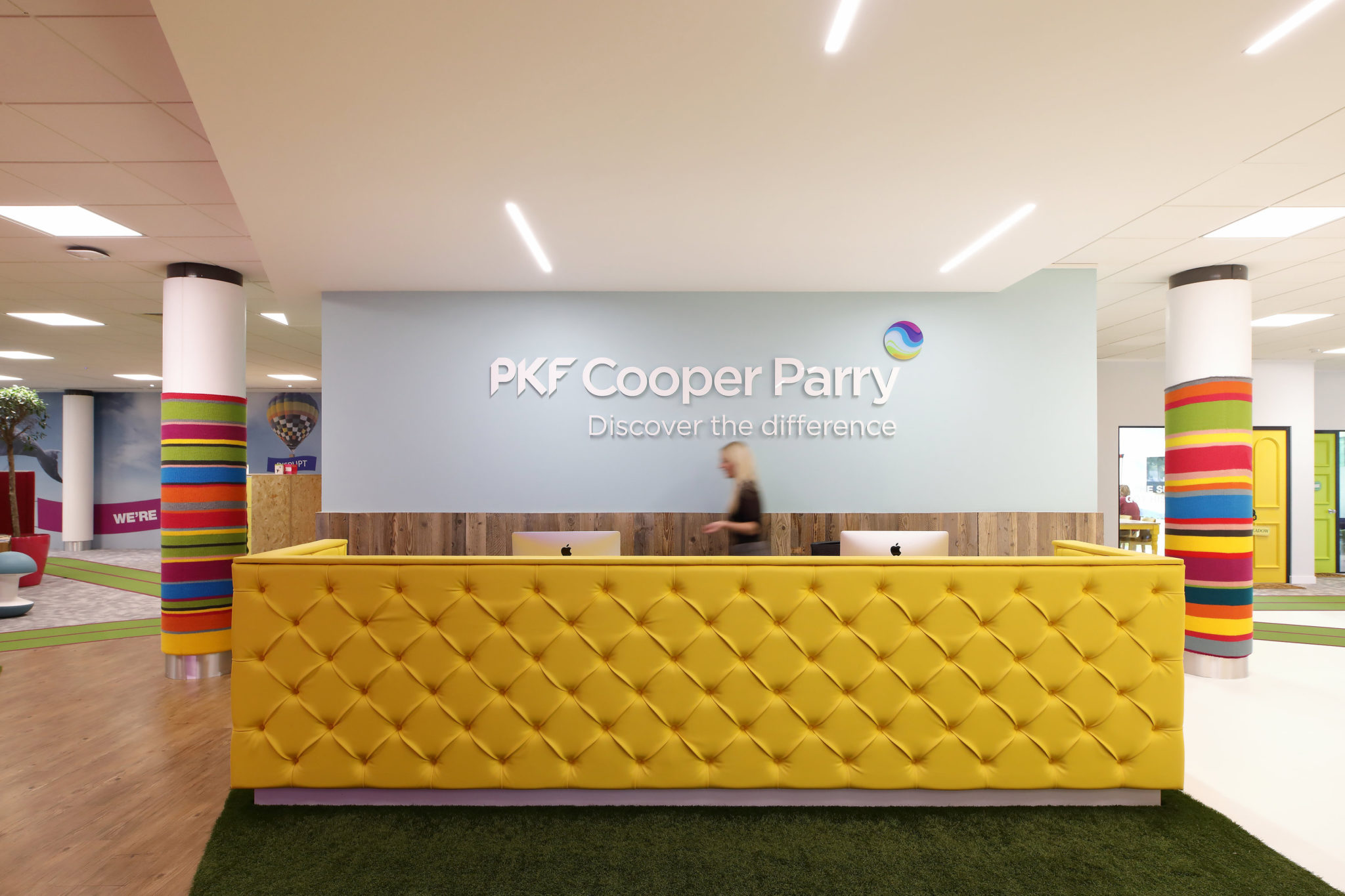Nottingham-based Paragon Interiors has come a long way since taking its first contract for £928 in 1986. It’s now an £80 million interior specialist and its chairman, Alan Hardy, and chief executive, Gary Perry, outlined to SpecFinish how customer focus is at the core of their strategy to transform the business. Adrian JG Marsh reports.
The real success of Alan Hardy’s first contract was not winning the order but getting paid in advance. Paragon’s founder, and now chairman, has grown a business that has a strong position in the commercial and public sector interior fit-out market, a roster of blue chip clients and an expanding office network.
In January 2017, Mr Hardy recruited Gary Perry from CBRE’s Global Workplace Solutions business to help drive Paragon forward. Mr Perry had been part of the Norland Managed Services leadership team that grew that business from £40 million to £400 million prior to selling it to CBRE in 2013.
Paragon is now in a major phase of growth of its own. This is being built around a focus on customer service. Mr Hardy explained that this is a key component that sets Paragon apart from its peers. He said: “We’re not the cheapest but we’re focused on delivering a quality product, on time and to budget.
“We’re creating long-term relationships and being very specific about which contracts to tender. Sizes vary from £500,000 to around £9 million. Customer service is the absolute king. If we do things properly then the profits will follow.
“We now get measured on every job by our clients. We agree a set of criteria, usually 10 items, and then ask each client to score us every month out of 10. We see this communication as an essential part of the process.”
Messrs Hardy and Perry want to break out of old structures to push their business so that they can make the customer journey, from taking a brief, then carrying out the works through to final account, as pain-free as possible.
As Mr Hardy said: “We know that the brief is critical because this sets out the client’s objective of what they want to achieve. And we have to deliver on that expectation.
“Up to recently, we had specialist departments dealing with sales, estimating and construction. Customers got passed around and, inadvertently, a lot of knowledge could be lost internally as contracts got handed from one team to another. This approach was no different to how most large construction businesses operate.
“So, we’ve now structured our business units so that they take responsibility for each project from initial contact to final account. We keep the knowledge in a single team and this helps to build a better understanding of what each customer wants and expects.”
Paragon has found that if it builds a project on paper, then a project goes so much smoother. Technology is an integral part of achieving improved flow of design and construction information. And improved communication is an important part of raising productivity, helping to improve the flow of information from design through to construction.
With Paragon on such an upward growth curve, it’s also having to look at its own supply chain and work with its suppliers to help them grow and be able to deliver what Paragon now needs. “A lot of our suppliers have been very loyal and delivered a great job, but as our work changes and the relationships we have with our clients evolve, our suppliers also have to change to be able to [help us] deliver our service,” explained Mr Hardy.
“Some [of our suppliers] want to join us on the journey but others are comfortable with being a certain size and want to stay where they are. As our client base has changed, it has meant we’ve had to look to build our supply chain to meet our new needs. We have two supply chain managers doing just that.”
Skills development is one of the biggest challenges for construction. Finding the right people is not easy and in terms of trade skills, Mr Hardy has some concerns about Brexit. “You’ve already seen some Europeans going home.
“We train and upskill all our workforce. How our supply chain partners bring in new skills is an import part of how we work with them.”
So where is Paragon going next?
Mr Hardy explained: “My target was always £100 million by 2020, and Gary is going to deliver that a year early. By 2025, we want to be a £250million business.
“Acquisition is not on our radar, but regional growth is. We opened in Birmingham last year and that’s been phenomenally successful. Leeds is opening later this year and this will be followed by Manchester. Then, in a couple of years, we’ll expand our London presence.”




